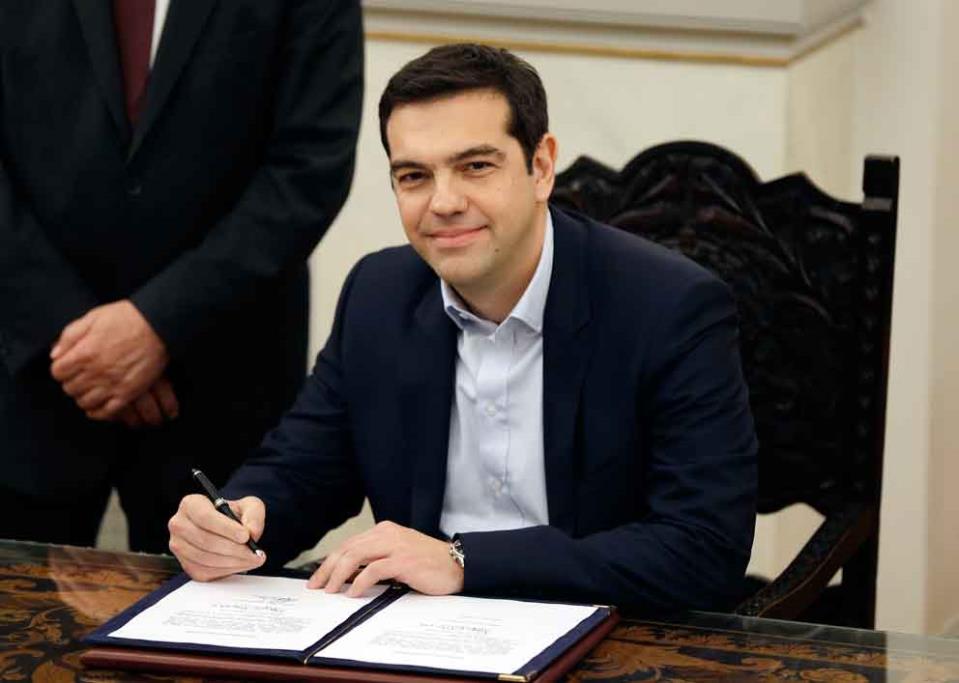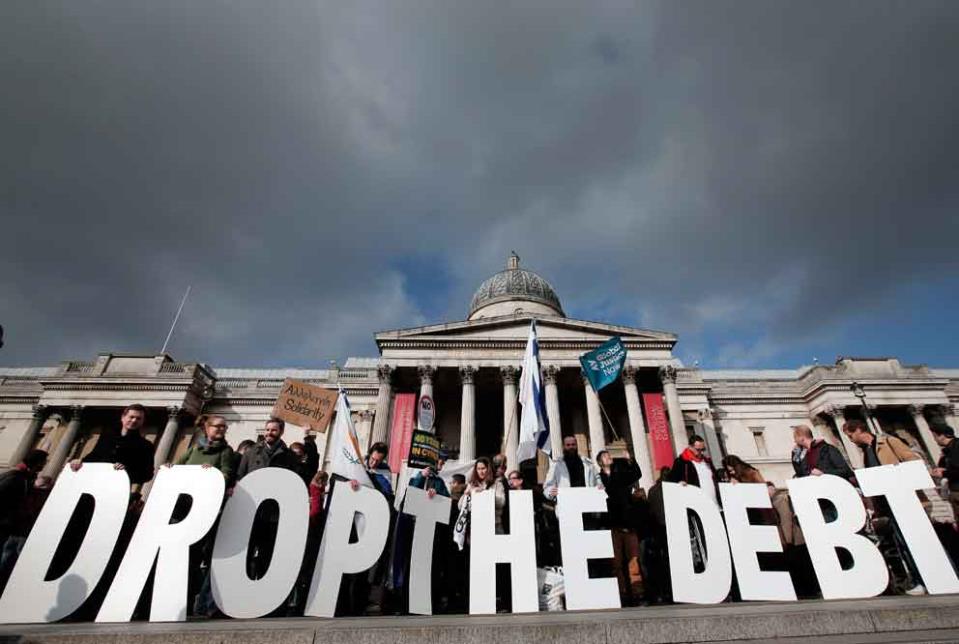Greece has submitted a proposal for an agreement with its bailout creditors, the prime minister said Tuesday, as the country seeks a deal that will unlock desperately needed rescue money.
Alexis Tspiras said it was now up to the leaders of Europe, who are Greece's main creditors, to accept a deal or risk potentially disastrous consequences for the region.
Without more rescue loans, Greece could default on its debts this month and eventually even drop out of Europe's currency bloc.
"It is now clear that the decision for whether they want to adapt to realism and emerge from the crisis without the division of Europe ... belongs to the political leadership of Europe," he said.
For four months, Greece and its creditors have been locked in a standoff over what reforms the country needs to make to get more loans.

Tsipras gave no specifics of what was included in the proposal included, which was submitted Monday night to the European Central Bank, International Monetary Fund and European Commission, the EU's executive.
His comments came the morning after the leaders of Germany, France, the IMF, ECB and European Commission held an emergency meeting about Greece in Berlin. It was unclear whether Greece had submitted its proposal before the leaders met.
According to a German government statement, the five pledged to work "with great intensity" to seek a solution.
Time is of the essence. Greece must repay a total of about 1.6 billion euros ($1.8 billion) to the IMF this month, with the first installment of 303 million euros due this Friday.
It is uncertain whether Greece has the money to pay Friday's debt unless it gets a deal with creditors to get 7.2 billion euros ($8 billion) more in rescue loans, the last installment from its five-year bailout program.
Greece has survived without bailout loans since last summer. In the meantime, it has scraped together reserves from state enterprises, including embassies abroad and schools, and has so far managed to repay its debts.

There have been suggestions Greece could seek to bundle all the money it owes the IMF this month into one payment on June 30 — an option permitted under IMF rules but rarely used. Taking that route could buy more time to secure a deal with creditors, although Athens has not indicated it is considering it.
Tsipras' government, a coalition of his radical left Syriza party and a small nationalist party, was elected in January on promises of repealing the deeply resented budget austerity measures that have accompanied its bailout.
Tsipras said Greece's latest proposals included some compromise.
"We have made concessions because a compromise requires concessions," Tsipras said. "We know these concessions will be difficult but we have submitted a realistic proposal for Greece's exit from the crisis. A realistic plan whose acceptance by the institutions, the creditors and our partners in Europe would mark the end of the scenarios of the division of Europe."
Europe's Economics and Financial Affairs Commissioner Pierre Moscovici said during a radio interview Tuesday that talks were "fruitful," though there was more work to be done.
"There is real progress in these talks and there is a better understanding between the Greek government and its creditors," he said on France Inter radio.
Moscovici said progress had been made on reforms to value added tax and the establishment of an independent tax agency, as well as administration reform, non-performing loans and pensions.
He indicated that talks could continue past Friday, however.
"In the few weeks that are coming up we have to find a solution," Moscovici said.
Speaking earlier, Deputy Prime Minister Yannis Dragasakis said Greece was "ready to respond to whatever is asked of it" to reach an agreement, but that Athens would not accept an ultimatum from its creditors.